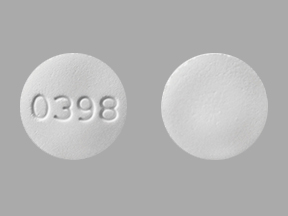
Diclofenac-misoprostol Coupons & Savings Card – Discount Prices from $44.87
Generic for: Arthrotec
Diclofenac, a nonsteroidal anti-inflammatory drug (NSAID), is designed to alleviate pain, swelling, and joint stiffness associated with arthritis. This medication is paired with Misoprostol to safeguard the stomach from irritation caused by Diclofenac. It is specifically intended for individuals with arthritis who are at a heightened risk of developing stomach or intestinal ulcers and related complications, like bleeding. For chronic conditions such as arthritis, consult your doctor about alternative non-drug treatments or other medications to manage your pain effectively. Please also review the Warning section.
Our coupons are free to use. Before paying, show the pharmacist your Diclofenac-misoprostol savings card to get your free discount. Use our filters below to edit the prescription box to match your needs. The Diclofenac-misoprostol prices will update based on your prescription needs. Above our Diclofenac-misoprostol coupons, you can change your location to see pharmacy prices and costs in other areas. We're here to help you buy Diclofenac-misoprostol at the lowest price with our prescription discount card.
My prescription
Edit
75-0.2MG, Diclofenac-misoprostol (60 Tablet Delayed Releases)
Select pharmacy

CVS
$44.87
COUPON PRICE
Walgreens
$54.72
COUPON PRICE
Walmart
$71.93
COUPON PRICE
Albertsons
$78.13
COUPON PRICEDiclofenac-misoprostol savings card
Show this card to your pharmacist
CVS
$44.87
BIN
ID
PCN
GRP
019876
LH8EE95120
CHIPPO
LHX
Powered by
Diclofenac, a nonsteroidal anti-inflammatory drug (NSAID), is designed to alleviate pain, swelling, and joint stiffness associated with arthritis. This medication is paired with Misoprostol to safeguard the stomach from irritation caused by Diclofenac. It is specifically intended for individuals with arthritis who are at a heightened risk of developing stomach or intestinal ulcers and related complications, like bleeding. For chronic conditions such as arthritis, consult your doctor about alternative non-drug treatments or other medications to manage your pain effectively. Please also review the Warning section.
Our coupons are free to use. Before paying, show the pharmacist your Diclofenac-misoprostol savings card to get your free discount. Use our filters below to edit the prescription box to match your needs. The Diclofenac-misoprostol prices will update based on your prescription needs. Above our Diclofenac-misoprostol coupons, you can change your location to see pharmacy prices and costs in other areas. We're here to help you buy Diclofenac-misoprostol at the lowest price with our prescription discount card.
More prescriptions for rheumatoid arthritis
coupons from$13.87Save 71%
coupons from$448.11Save 28%
coupons from$6.67Save 82%
coupons from$5554.87Save 17%
coupons from$3.78Save 75%
coupons from$149.25Save 83%
coupons from$6508.48Save 14%
coupons from$116.20Save 89%
More prescriptions for rheumatoid arthritis
Plaquenil Save 71%coupons from $13.87
Cortisone Save 28%coupons from $448.11
Indomethacin Save 82%coupons from $6.67
Olumiant Save 17%coupons from $5554.87
Prednisolone Sodium Phosphate Save 75%coupons from $3.78
Naprelan Save 83%coupons from $149.25
Cimzia Save 14%coupons from $6508.48
Zipsor Save 89%coupons from $116.20
Diclofenac-misoprostol dosage forms
Use our Diclofenac-misoprostol 50-0.2MG coupon with prices from $27.98 for 30 Tablet Delayed Releases. You can also use our Diclofenac-misoprostol 50-0.2MG coupon with prices from $37.66 for 60 Tablet Delayed Releases. We have a Diclofenac-misoprostol 50-0.2MG coupon with prices from $55.34 for 90 Tablet Delayed Releases. You can use our Diclofenac-misoprostol 50-0.2MG coupon with prices from $84.39 for 180 Tablet Delayed Releases.
Dosage Quantity Price from Per unit 50-0.2MG 30 Tablet Delayed Releases $27.98 $0.93 50-0.2MG 60 Tablet Delayed Releases $37.66 $0.63 50-0.2MG 90 Tablet Delayed Releases $55.34 $0.61 50-0.2MG 180 Tablet Delayed Releases $84.39 $0.47 50-0.2MG 270 Tablet Delayed Releases $113.43 $0.42 75-0.2MG 60 Tablet Delayed Releases $44.87 $0.75 75-0.2MG 30 Tablet Delayed Releases $31.58 $1.05 75-0.2MG 90 Tablet Delayed Releases $66.15 $0.73 75-0.2MG 120 Tablet Delayed Releases $79.44 $0.66 75-0.2MG 180 Tablet Delayed Releases $106.00 $0.59
| Dosage | Quantity | Price from | Per unit |
|---|---|---|---|
| 50-0.2MG | 30 Tablet Delayed Releases | $27.98 | $0.93 |
| 50-0.2MG | 60 Tablet Delayed Releases | $37.66 | $0.63 |
| 50-0.2MG | 90 Tablet Delayed Releases | $55.34 | $0.61 |
| 50-0.2MG | 180 Tablet Delayed Releases | $84.39 | $0.47 |
| 50-0.2MG | 270 Tablet Delayed Releases | $113.43 | $0.42 |
| 75-0.2MG | 60 Tablet Delayed Releases | $44.87 | $0.75 |
| 75-0.2MG | 30 Tablet Delayed Releases | $31.58 | $1.05 |
| 75-0.2MG | 90 Tablet Delayed Releases | $66.15 | $0.73 |
| 75-0.2MG | 120 Tablet Delayed Releases | $79.44 | $0.66 |
| 75-0.2MG | 180 Tablet Delayed Releases | $106.00 | $0.59 |
